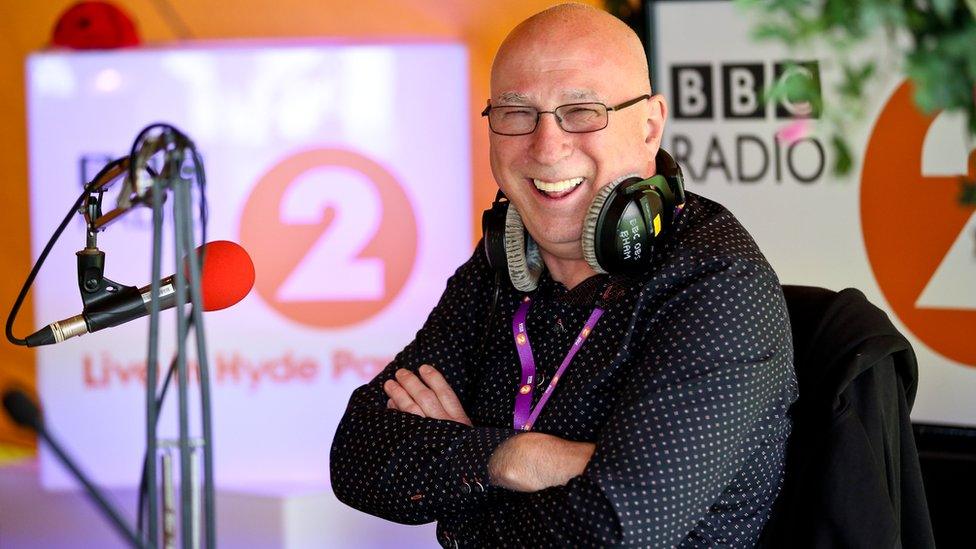Rajars: Breakfast radio shows lost listeners during pandemic
- Published
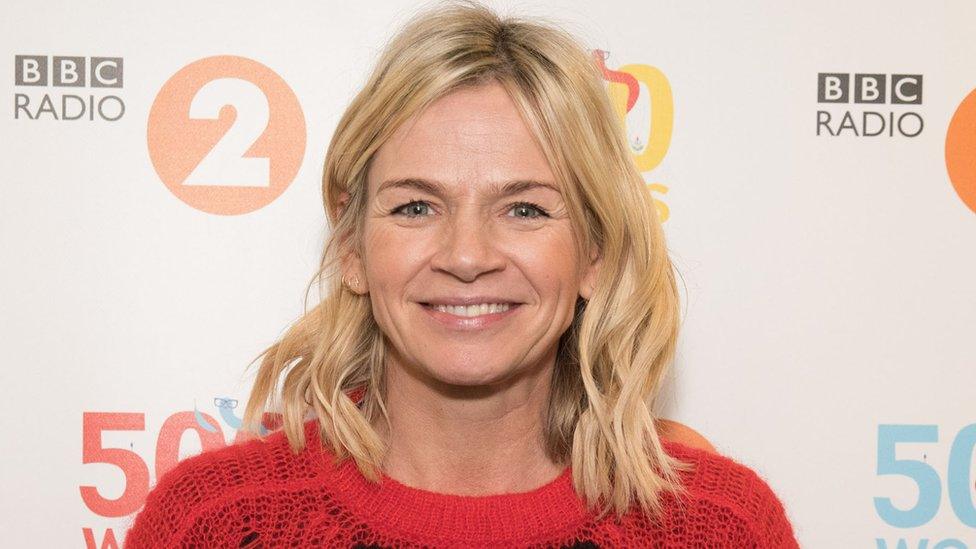
BBC Radio 2's Zoe Ball still has the UK's most popular breakfast show
Many breakfast radio shows now have smaller audiences than before the pandemic, according to new figures.
Zoe Ball, Greg James, Roman Kemp, Chris Evans and the Today programme are among the shows to have fewer listeners than the last time ratings were measured.
The drop can be partly explained by lower commuter numbers as many people continue to work from home.
But industry body Rajar urged caution when making comparisons because it is also measuring audiences in new ways.
The latest radio listening figures are the first to be published since May 2020, and now incorporate smartphone data in the methodology.
The ratings cover July to September this year, with some data based on a smaller sample of listeners from the previous three months also included.
Some DJs, such as Radio X's Chris Moyles, appear to have bucked the downward trend for breakfast shows; while radio listening in general has increased slightly and many stations improved their overall reach.
BBC Radio 5 Live, for example, recorded a significant boost, probably helped by coverage of summer sport events such as the Euros and the Olympics.
The station attracted 5.9 million weekly listeners between July and September, up from 5.2 million before the pandemic. Its sister station 5 Live Sports Extra was also up, to 1.6 million.
The increase in radio listening as a whole, juxtaposed with the decrease for breakfast show audiences, suggests the figures reflect how listening habits and lifestyles have been changed by the pandemic.
While fewer people might listen to a breakfast show, some radio stations noted their daytime figures were up, likely a result of people listening more while working at home during the day.
The latest listening figures show:
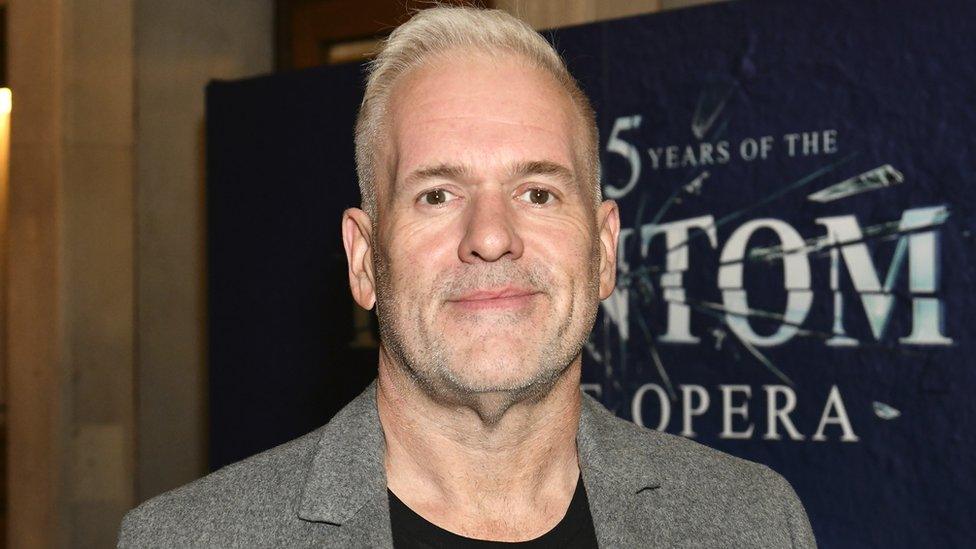
Radio X presenter Chris Moyles is one of the few breakfast DJs to have performed better under the new measures
Times Radio, an extension of the newspaper brand which launched in June 2020, has attracted an impressive 637,000 weekly listeners. This is the first time its official figures have been published.
That puts it above other speech stations such as Talk Radio, which recorded 450,000 listeners in the latest quarter - but that's an improvement on their last pre-pandemic figure of 424,000.
Another new station, Boom Radio, debuted with an audience of 233,000. Aimed at the baby boomer generation, the station was considered a rival to Radio 2 for listeners who feel the BBC station has skewed too young in recent years.
Chris Evans saw his Virgin Radio breakfast audience drop below the 1.1 million he achieved in early 2020, to 985,000 in this quarter. However, Rajar advised caution in comparing the new figures to historical data due to its new methodology.
With the same caveat, BBC Radio 2's Zoe Ball attracted an audience of 7.2 million listeners - down from her last available ratings of 8.1 million, recorded in the first quarter of 2020. It does, however, remain the biggest breakfast show in the UK.
Radio 1 breakfast host Greg James was down to 4.3 million, from a previous figure of 4.9 million. However, since last May, his show time has changed, with a later start time of 07:00, and running later than other breakfast shows, to 10:30.
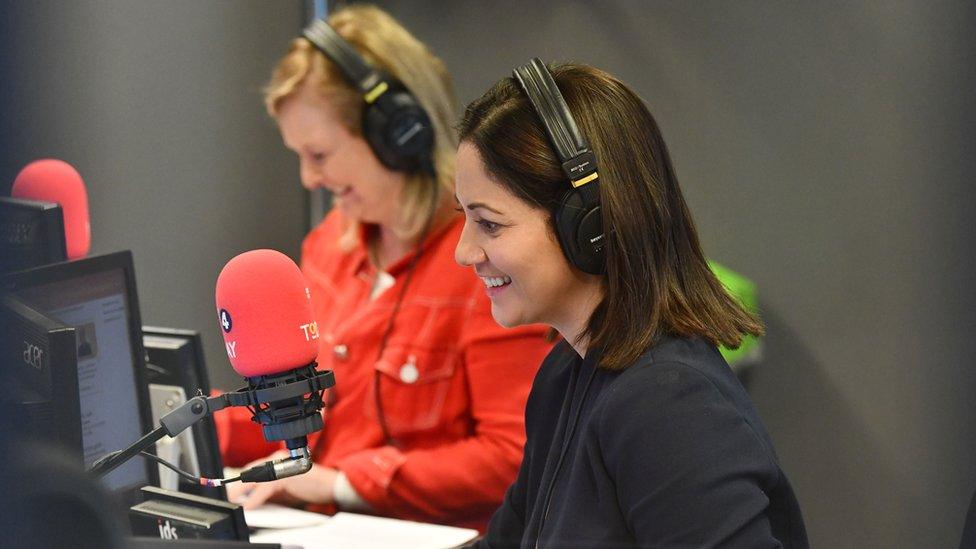
The Radio 4 Today programme's hosts include Martha Kearney and Mishal Husain
Capital breakfast host Roman Kemp attracted 2.8 million listeners. Prior to the pandemic and under the old measuring system, that figure was 3.3 million.
A spokesman for Radio 1 stressed that the station has a young target audience, and figures would be higher if children aged over 10 were included by Rajar. This would also be true of Capital. Radio 1 drew attention to its strong presence on social media and YouTube - where their channel attracts 1.62 million views per day.
Kiss breakfast, which got new hosts last year in Jordan Banjo and Perri Kiely, was down from 1.4 million in the last figures to 980,000.
BBC Radio 4's Today programme attracted 6.5 million. The last available figures were almost seven million in the first quarter of 2020.
A smaller drop was recorded by BBC Radio 5 Live Breakfast, which was down from 2.1 million to 2 million.
Chris Moyles crossed the 1 million mark for the first time since taking over the Radio X Breakfast Show in 2015, making him one of the few morning DJs to have increased their audience under the new methodology.
On BBC 6Music, breakfast host Lauren Laverne also increased her figures slightly, from 1.3 million to 1.35 million.
Heart's breakfast show, presented by Jamie Theakston and Amanda Holden, was the most listened-to commercial breakfast show in the UK, with 4.1 million listeners.
Absolute Radio host Dave Berry held steady, with 2.15 million listeners - almost exactly the same as the first quarter of 2020
Speech station LBC celebrated an all-time record, with three million weekly listeners.
Nations radio (such as BBC Scotland) and Local BBC Radio in England had a combined audience of 9.16 million
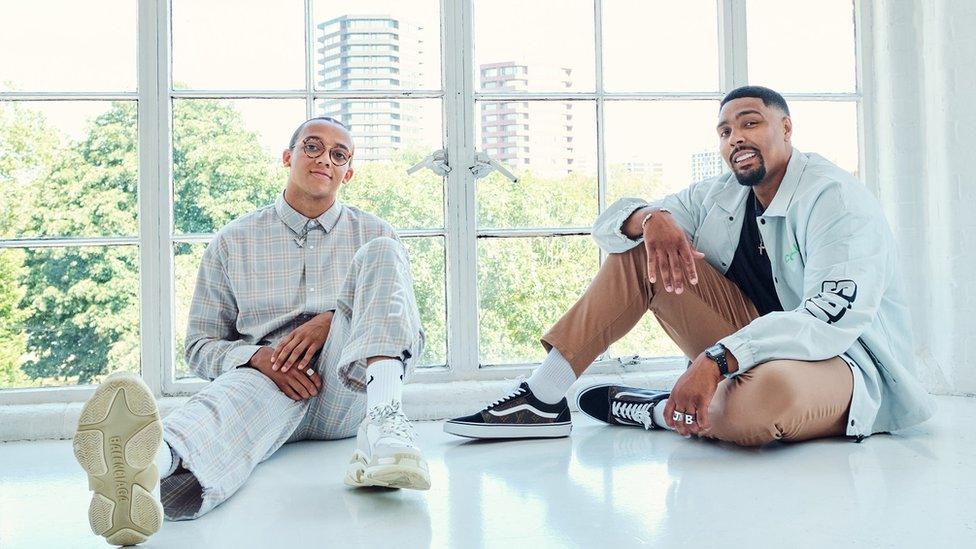
Diversity stars Perri Kiely (left) and Jordan Banjo took over Kiss breakfast last year
Rajar said 89% of the UK population listen to radio at least once a week, with the average listener clocking up just over 20 hours of listening over seven days.
A great deal of radio listening is now on digital platforms such as DAB, smartphone and tablet apps or websites. Around 74% of people surveyed said they listen digitally every week.
Smart speakers now account for a large proportion of listening - around 48% of people who own speakers said they used it to listen to radio weekly.
Of those users, 20% said they listen to radio via a smart speaker on a daily basis.
Rajar figures were suspended during the pandemic, as the industry body was not able to conduct its usual face-to-face research.

Follow us on Facebook, external, or on Twitter @BBCNewsEnts, external. If you have a story suggestion email entertainment.news@bbc.co.uk, external.
Related topics
- Published25 March 2020
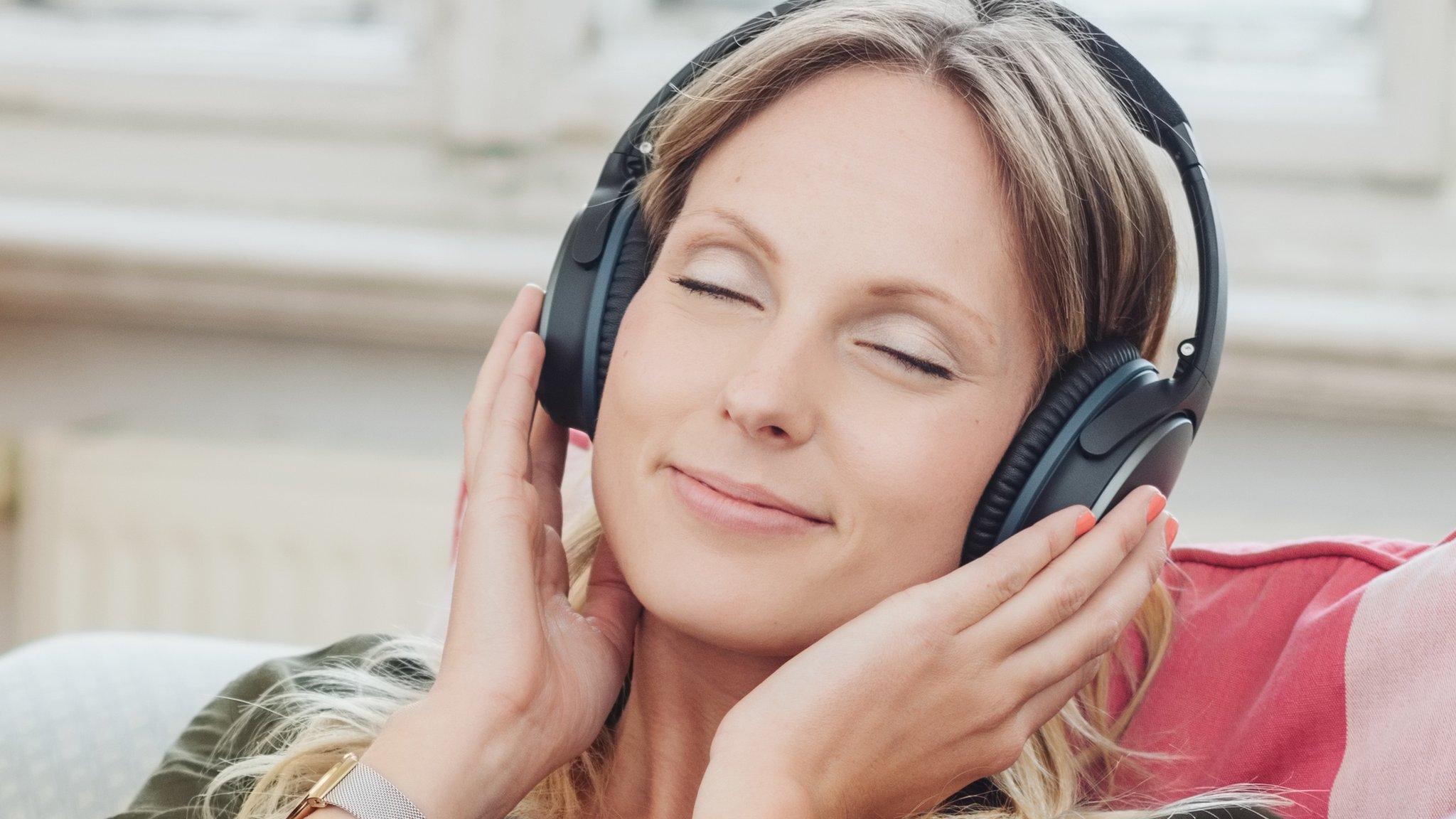
- Published17 April 2020
